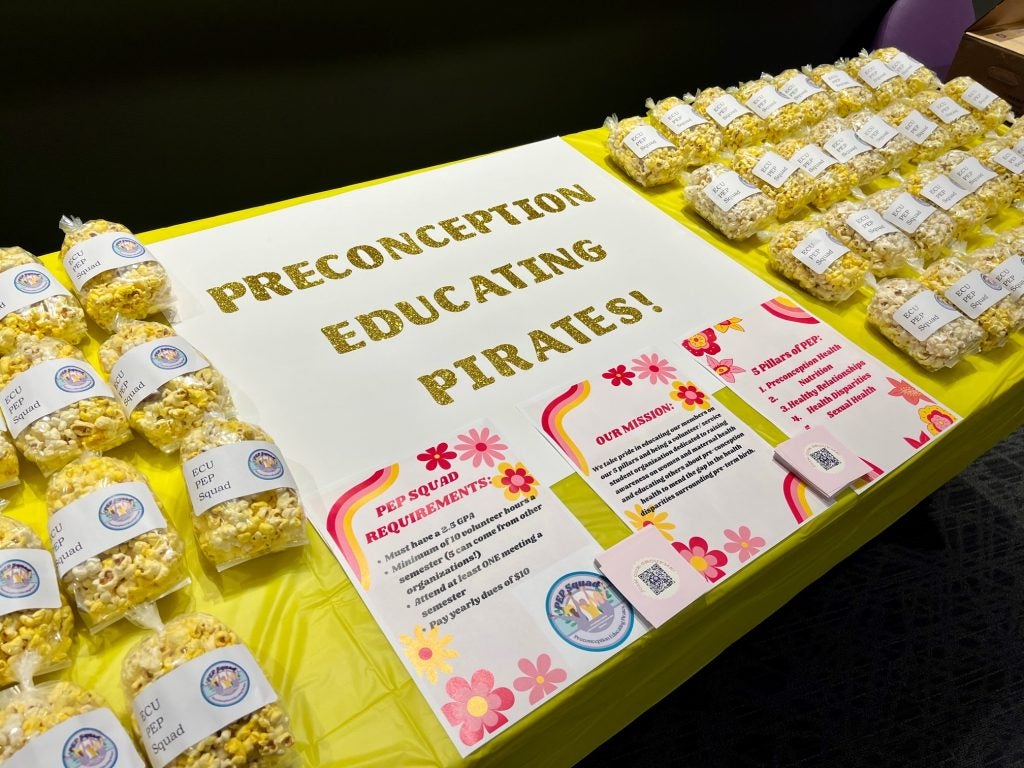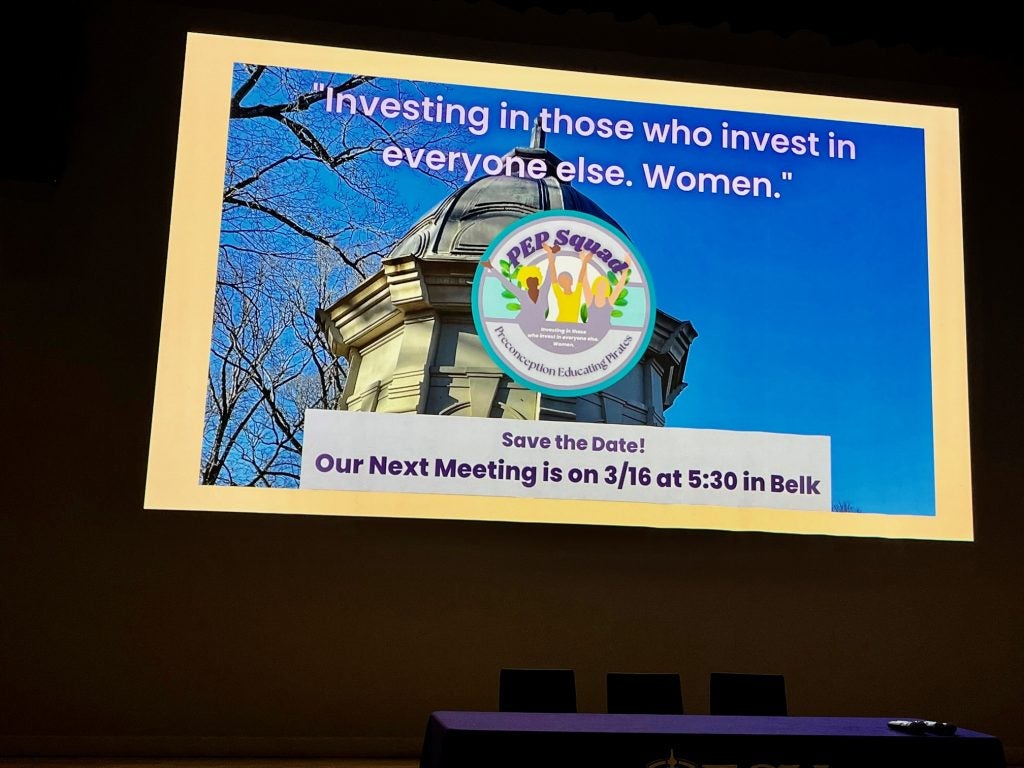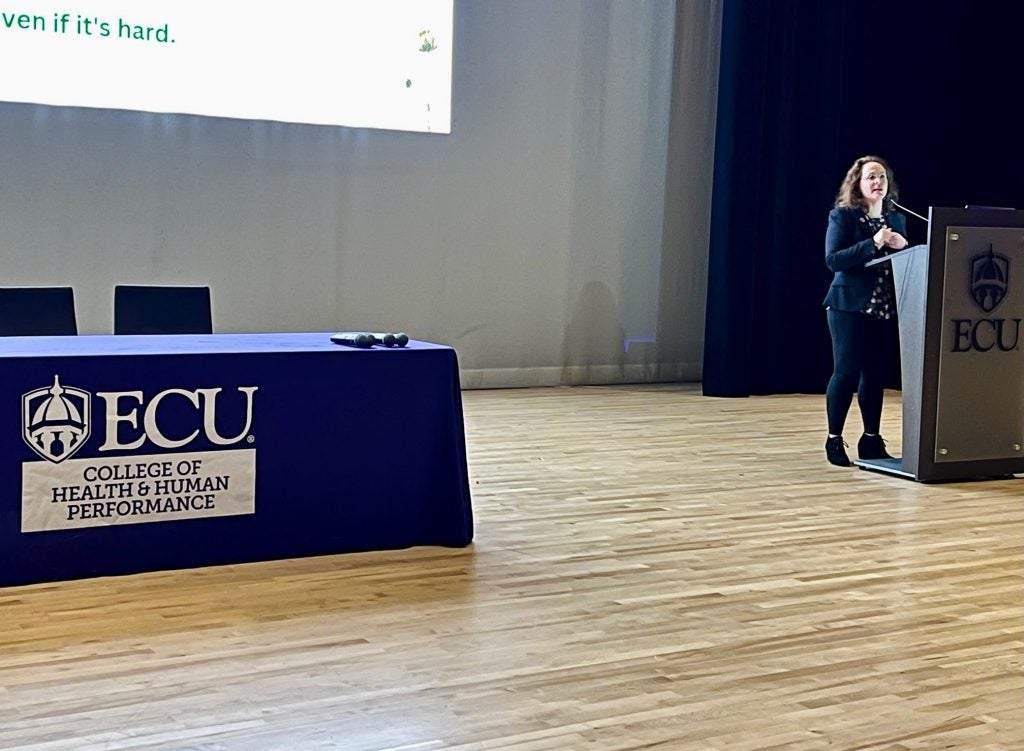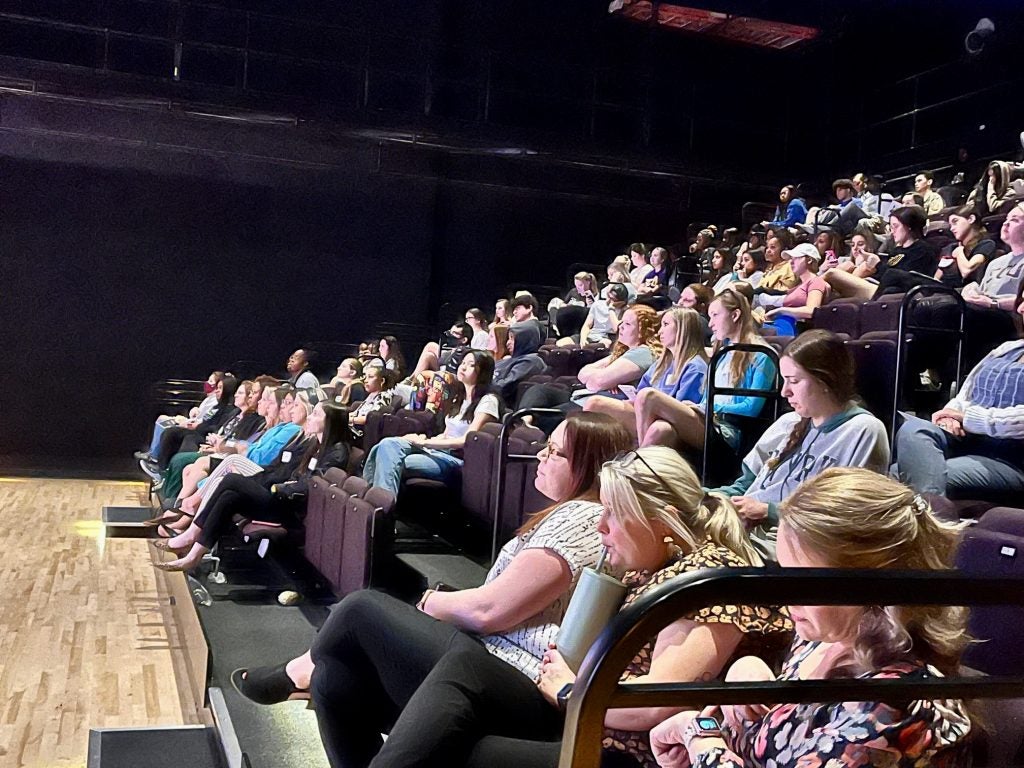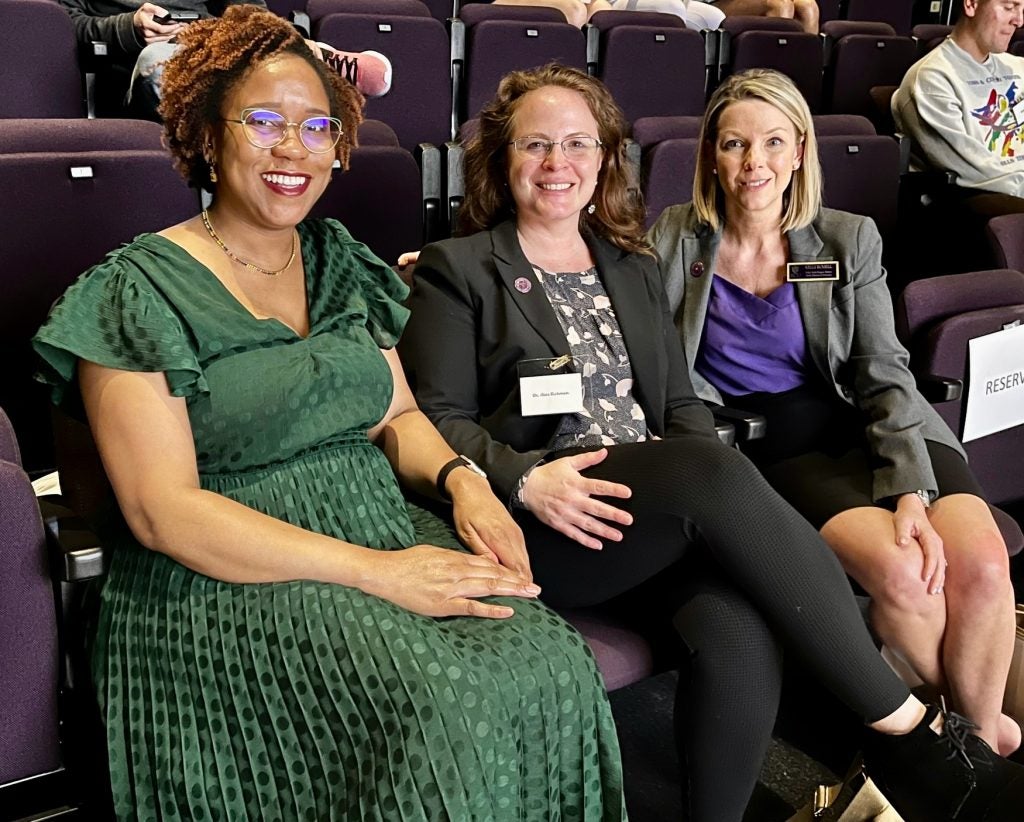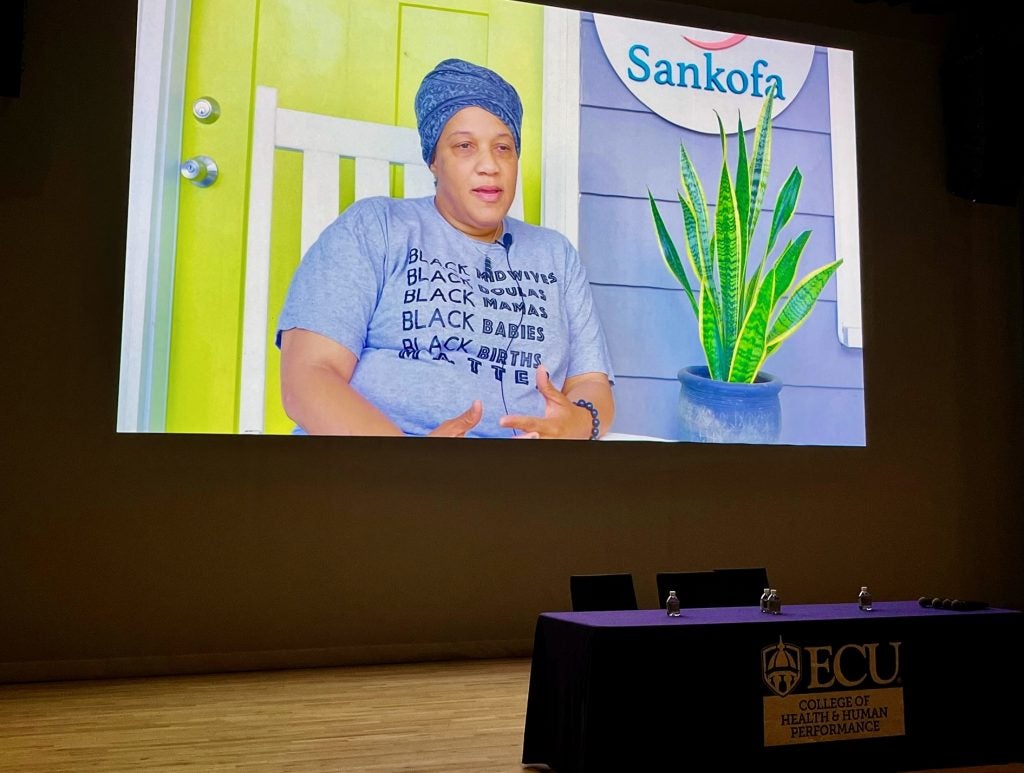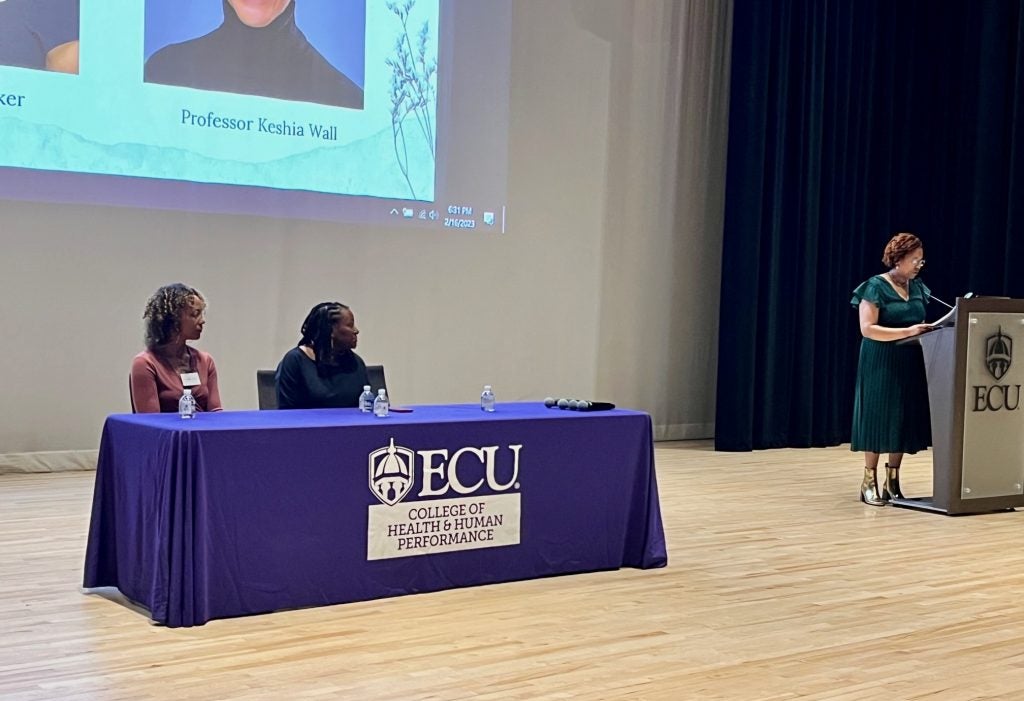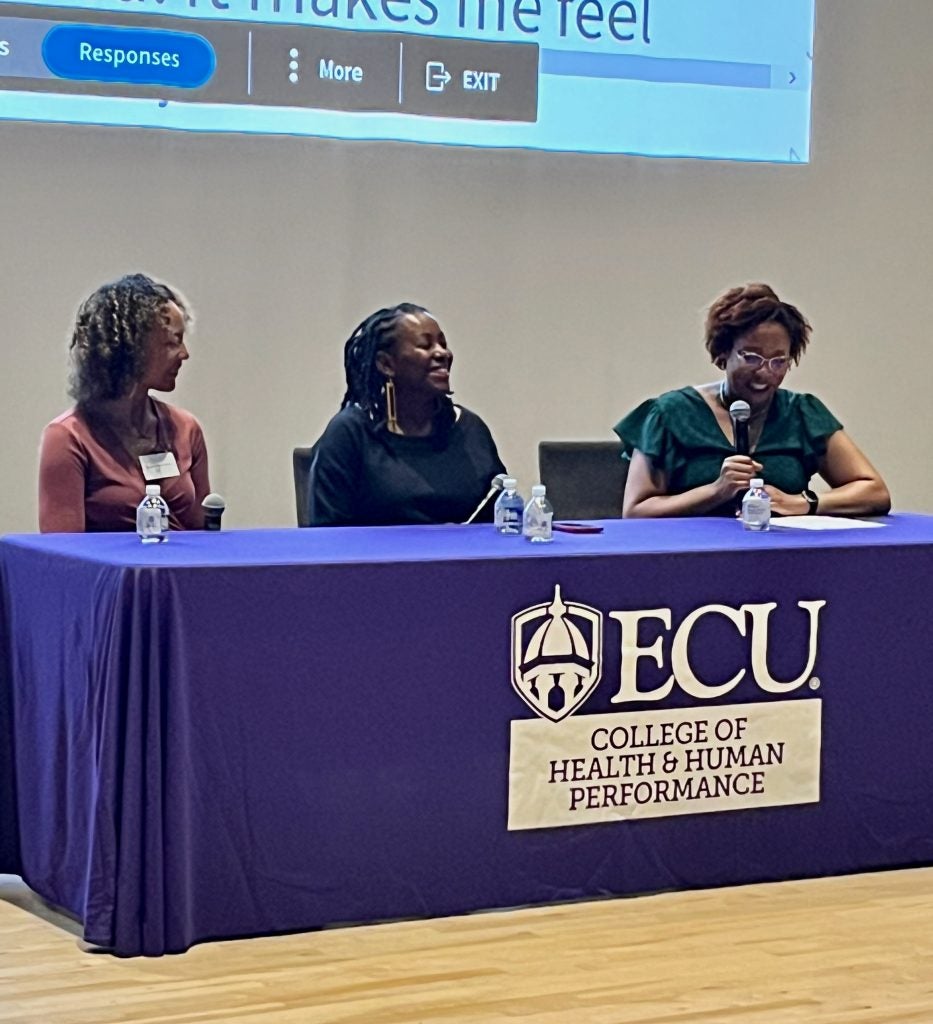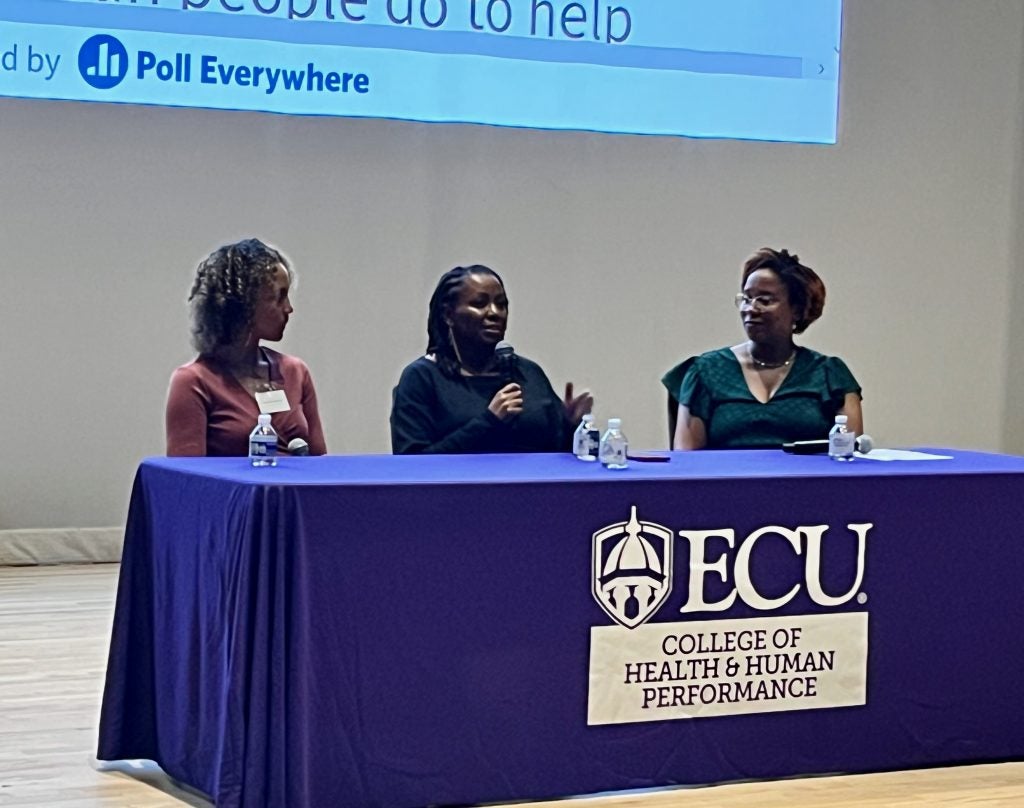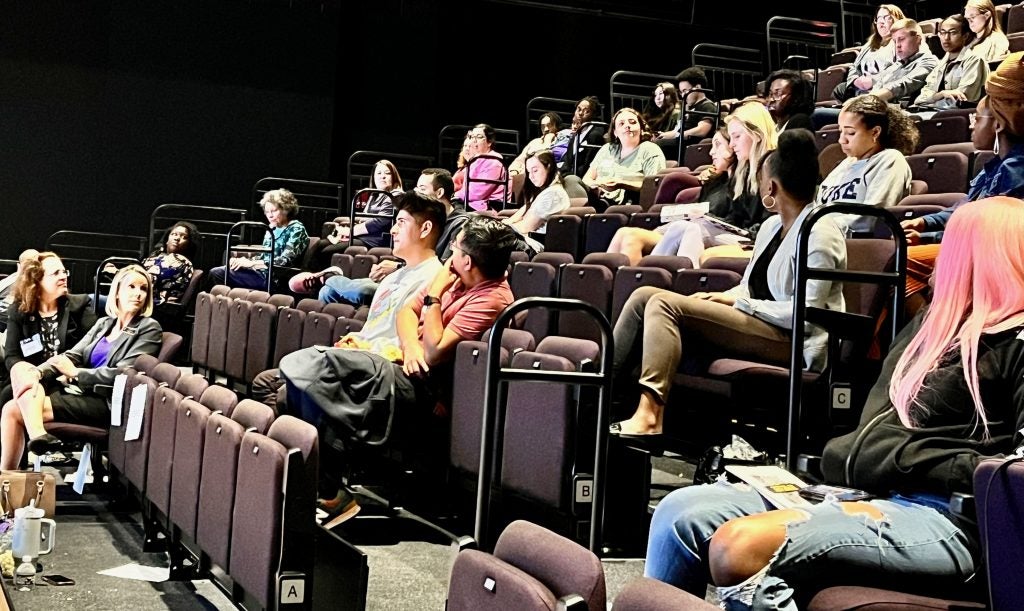Film festival held for MCH
Another successful film festival was completed Feb. 16 with the HHP Maternal and Child Health Film Festival held at Black Box Theater at the Main Campus Student Center.
Student attendance and participation were themes throughout the day, beginning with students filling the theater for the first film of “America’s War on Abortion.” The second film, “Reclaiming Power: The Black Maternal Health Crisis,” also featured a solid student turnout.

Students, staff and faculty interact during a tabling event at Black Box Theater prior to the showing of “Reclaiming Power: The Black Maternal Health Crisis.” (Photos by Ronnie Woodward/HHP)
This was part of HHP’s annual prevention science initiative, which this year focuses on Maternal and Child Health. Co-chairs for the Maternal and Child Health initiative are Kelli Russell and Drs. Kristin Black and Alice Richman, who are all part of the Department of Health Education and Promotion.
Collaborative work by Elon University faculty members Keisha Wall and Dr. Stephanie Baker led to the production of “Reclaiming Power: The Black Maternal Health Crisis,” a short dance documentary film. Wall and Baker were at ECU for the HHP film festival and were joined by Black following the showing to lead an enlightening panel discussion.
“Dance for the camera is a growing field right now, so I’m grateful that the students who were able to participate were able to see me in motion and see themselves in the film,” Wall said. “I think it opens up new avenues. … Dance can illuminate how audience members take it in. They could read it, of course, but them seeing a 15-minute film, now you have all of the information and perhaps your ears are listening in a different way because you have all these visuals.”
The panelists also said they want Black women to feel empowerment in birthing, compared to facing stress or oppression or other negative challenges and structural racism.
Wall instructs courses in contemporary and traditional West African dance. Baker’s research areas include using racial equity, anti-racism and intersectionality lenses to understand and address health inequities.
To help with audience engagement and discussions, Poll Everywhere was effectively used during the film festival. This allowed students and other guests to provide anonymous comments and type questions as they were viewing the films.
Richman said a productive discussion was led by students during the Poll Everywhere reaction segment after “America’s War on Abortion.” The panel discussion following “Reclaiming Power: The Black Maternal Health Crisis” included insight on a variety of topics and the opportunity for students to ask questions to the panelists about their expertise and insight.
“This is a powerful short film that sheds light on the health and pregnancy journey of Black birthing people in our nation,” Black said before the start of the evening film. “Across the globe, approximately 810 birthing people die every day from causes related to pregnancy and child birth. What is even more devastating about this statistic is that many of these untimely deaths are preventable. The United States has the highest maternal mortality rate of any high-resource country.”

